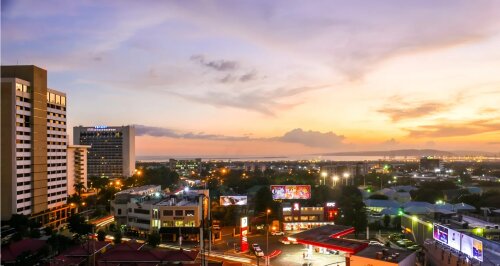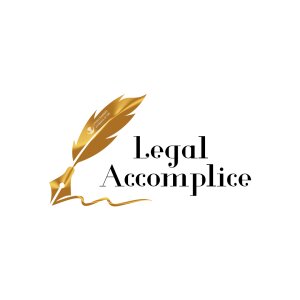Best Agriculture Lawyers in Montego Bay
Share your needs with us, get contacted by law firms.
Free. Takes 2 min.
List of the best lawyers in Montego Bay, Jamaica
About Agriculture Law in Montego Bay, Jamaica
Montego Bay, situated on the northwest coast of Jamaica, is a vibrant city well-known for its tourism industry. Although not typically recognized as an agricultural hub, the surrounding areas of Montego Bay do engage in agricultural activities, including the cultivation of crops and livestock farming. The region benefits from Jamaica's fertile soil and favorable climate, making agriculture a viable economic activity. Agriculture law in Montego Bay involves issues related to farming practices, land use, environmental regulations, water rights, and trade. Understanding the local agricultural scene is crucial for stakeholders aiming to navigate the legal landscape effectively.
Why You May Need a Lawyer
There are several scenarios in which individuals or businesses involved in agriculture in Montego Bay might require legal assistance:
- Land Disputes: Agriculture often involves land usage, which can lead to conflicts over property boundaries, easements, or land ownership.
- Environmental Compliance: Ensuring that farming practices comply with environmental regulations to protect local ecosystems and waterways.
- Contract Negotiations: Legal help may be necessary when drafting and negotiating contracts with suppliers, distributors, and buyers.
- Regulatory Issues: Navigating the complex landscape of local and national agricultural laws and regulations.
- Access to Financing: Assistance with securing financing and adhering to financial regulations related to agricultural development.
- Intellectual Property: Protection of proprietary farming technologies or crop varieties.
Local Laws Overview
Agriculture in Montego Bay, as well as the rest of Jamaica, is subject to a range of laws and regulations designed to promote sustainable development and protect the environment. Key areas include:
- Land Use Policies: Regulations defining how land can be used for agricultural purposes within the broader context of urban development.
- Environmental Protection Acts: Laws aimed at minimizing environmental degradation from agricultural activities.
- Water Resource Management: Guidelines for the use and distribution of water resources in farming.
- Trade and Export Laws: Regulations governing the export of agricultural products, including phytosanitary requirements.
- Labour Laws: Standards for hiring, compensating, and treating agricultural workers fairly.
Frequently Asked Questions
What are the main crops grown in the Montego Bay area?
The Montego Bay area, like much of Jamaica, grows a variety of crops, including sugarcane, coffee, bananas, and yams. Smaller-scale agricultural activities may include vegetables and tropical fruits.
Are there any incentives for farmers in Jamaica?
Yes, the Jamaican government offers various incentives such as tax reliefs, grants, and subsidies to promote agriculture, improve productivity, and support small farmers.
What environmental policies affect agriculture in Montego Bay?
Local agriculture must comply with environmental regulations aimed at land preservation, reducing pesticide usage, and protecting water resources. The National Environment and Planning Agency (NEPA) plays a key role in enforcement.
How can I resolve a land dispute related to agriculture?
Resolving land disputes in agriculture often requires legal consultation. Mediation or arbitration may help, but court proceedings can be necessary for more complex cases.
What are the regulations on the use of pesticides in agriculture in Montego Bay?
The Pesticides Control Authority regulates the use of pesticides in Jamaica, ensuring safe practices are followed to protect public health and the environment.
Is organic farming popular in Montego Bay?
While not as widespread as conventional farming, organic farming is growing in popularity due to increasing consumer demand for organic produce and a global push towards sustainable practices.
How can I access agricultural financing?
Farmers can access financing through government programs, agricultural cooperatives, and commercial banks that offer loans and grants for agricultural development.
What should I know about agricultural export laws in Jamaica?
Agricultural exports must meet specific licensing requirements and comply with international standards. The Ministry of Agriculture provides resources and guidance for farmers and exporters.
How does climate change impact agriculture in Montego Bay?
Climate change poses challenges such as increased frequency of extreme weather events, which can impact crop yield and quality. Adaptive strategies and sustainable practices are encouraged to mitigate these effects.
What legal steps should I take to start an agricultural business in Montego Bay?
Starting an agricultural business involves registering the business, obtaining necessary permits, and understanding local agricultural regulations. Consulting with a lawyer can ensure compliance and provide guidance on best practices.
Additional Resources
To better understand and navigate agriculture in Montego Bay, consider engaging with these resources:
- Ministry of Agriculture and Fisheries: Offers information and support for agricultural practices and policies.
- National Environment and Planning Agency (NEPA): Provides guidance on environmental regulations affecting agriculture.
- Pesticides Control Authority: Regulates the use of pesticides in agriculture, ensuring safe practices.
- Rural Agricultural Development Authority (RADA): Offers training and extension services to farmers.
Next Steps
If you need legal assistance related to agriculture in Montego Bay, consider taking the following steps:
- Identify Your Needs: Clearly outline the legal issues or questions you have regarding your agricultural activities.
- Consult a Qualified Lawyer: Seek out legal professionals with expertise in agriculture law and familiarity with local regulations.
- Gather Relevant Documents: Prepare any relevant documents, such as land titles, contracts, or correspondence related to your agricultural activities.
- Develop a Legal Strategy: Work with your lawyer to create a plan that addresses your legal concerns and aligns with your business goals.
- Stay Informed: Keep abreast of changes in local laws and regulations that might impact agriculture in Montego Bay. Regularly engage with local agricultural bodies and associations for updates and resources.
Lawzana helps you find the best lawyers and law firms in Montego Bay through a curated and pre-screened list of qualified legal professionals. Our platform offers rankings and detailed profiles of attorneys and law firms, allowing you to compare based on practice areas, including Agriculture, experience, and client feedback.
Each profile includes a description of the firm's areas of practice, client reviews, team members and partners, year of establishment, spoken languages, office locations, contact information, social media presence, and any published articles or resources. Most firms on our platform speak English and are experienced in both local and international legal matters.
Get a quote from top-rated law firms in Montego Bay, Jamaica — quickly, securely, and without unnecessary hassle.
Disclaimer:
The information provided on this page is for general informational purposes only and does not constitute legal advice. While we strive to ensure the accuracy and relevance of the content, legal information may change over time, and interpretations of the law can vary. You should always consult with a qualified legal professional for advice specific to your situation.
We disclaim all liability for actions taken or not taken based on the content of this page. If you believe any information is incorrect or outdated, please contact us, and we will review and update it where appropriate.










